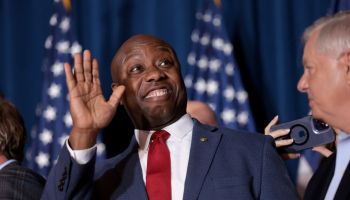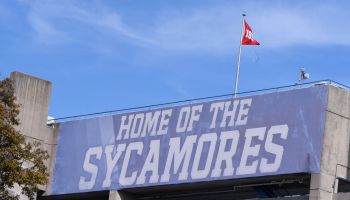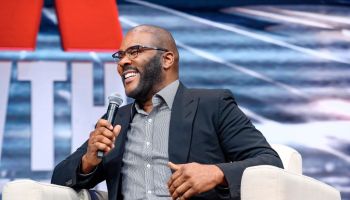Elizabeth Alexander was a toddler in a baby stroller when her parents took her to hear Martin Luther King’s historic “I Have a Dream” speech in Washington.
Now, it’s Alexander’s turn to move the nation.
Alexander, professor of African-American studies at Yale University, was chosen by President-elect Barack Obama to compose and read a poem for his inauguration on Jan. 20.
“I’m completely thrilled and deeply, deeply honored,” Alexander said Thursday.
Alexander’s mother is a historian specializing in African-American women’s history at George Washington University. Her father was a presidential civil rights adviser and secretary of the Army.
“The civil rights movement was fully alive in our home,” Alexander said.
Attending King’s 1963 speech was an iconic moment for the family.
“That story was always a part of family stories that were told as a way of thinking about the importance of being civic, the importance of looking forward, the importance of having visionary leaders, the importance of involving yourself with the community, the importance of recognizing the historical moment and historical possibilities,” Alexander said.
Alexander said her parents are thrilled at her selection.
“This is an incomparable thrill to them in the way that Obama’s presidency is an especially potent and powerful thing for African-Americans in their 70s who have devoted their lives to progress,” Alexander said. “To be a part of it, I almost can’t imagine it myself.”
Alexander, who is 46 and married with two children, was a Pulitzer Prize finalist in 2005 for her collection “American Sublime.” Her other books include “The Venus Hottentot,” “Body of Life” and “Antebellum Dream Book.”
Last year, she won the $50,000 Jackson Poetry Prize.
Alexander will be only the fourth poet to read at a presidential swearing in. Robert Frost read for President John F. Kennedy, while Maya Angelou and Miller Williams read at President Clinton’s inaugurations.
“I think what I hope to symbolize and demonstrate is the important role that arts and literature can play in this moment when the country is thinking so keenly about moving forward and coming together,” Alexander said.
Alexander acknowledged the challenge before her. She said she does not start with a message in mind, likening the process to a radio antenna in which she listens for the right language.
“You’re always trying to catch a rhythm,” she said. “It’s something I will be chipping away at every day.”
Alexander is friends with Obama from her days when they were on the faculty at the University of Chicago in the 1990s.
“That friendship makes this opportunity all the more special,” she said.
Tree Swenson, executive director of the Academy of American Poets, welcomed her selection.
“Elizabeth Alexander is a superb choice for the Obama inauguration: She is from Washington, she represents Obama’s generation, and she has written about the civil rights conflict and other historical events that have shaped the character of this country,” Swenson said. “At the same time, her intense personal vision reveals the commonplace life illuminated from startling new angles _ as good poetry always does.”
Former U.S. poet laureate Billy Collins said Alexander faces a tall order.
“I don’t envy her,” Collins wrote in an e-mail. “Such poems are nearly impossible to bring off. Because of the heaviness of the subject the risk is that you will end up under it rather than on top. I wish her well and I’m certainly glad Obama is making room for a poet.”















